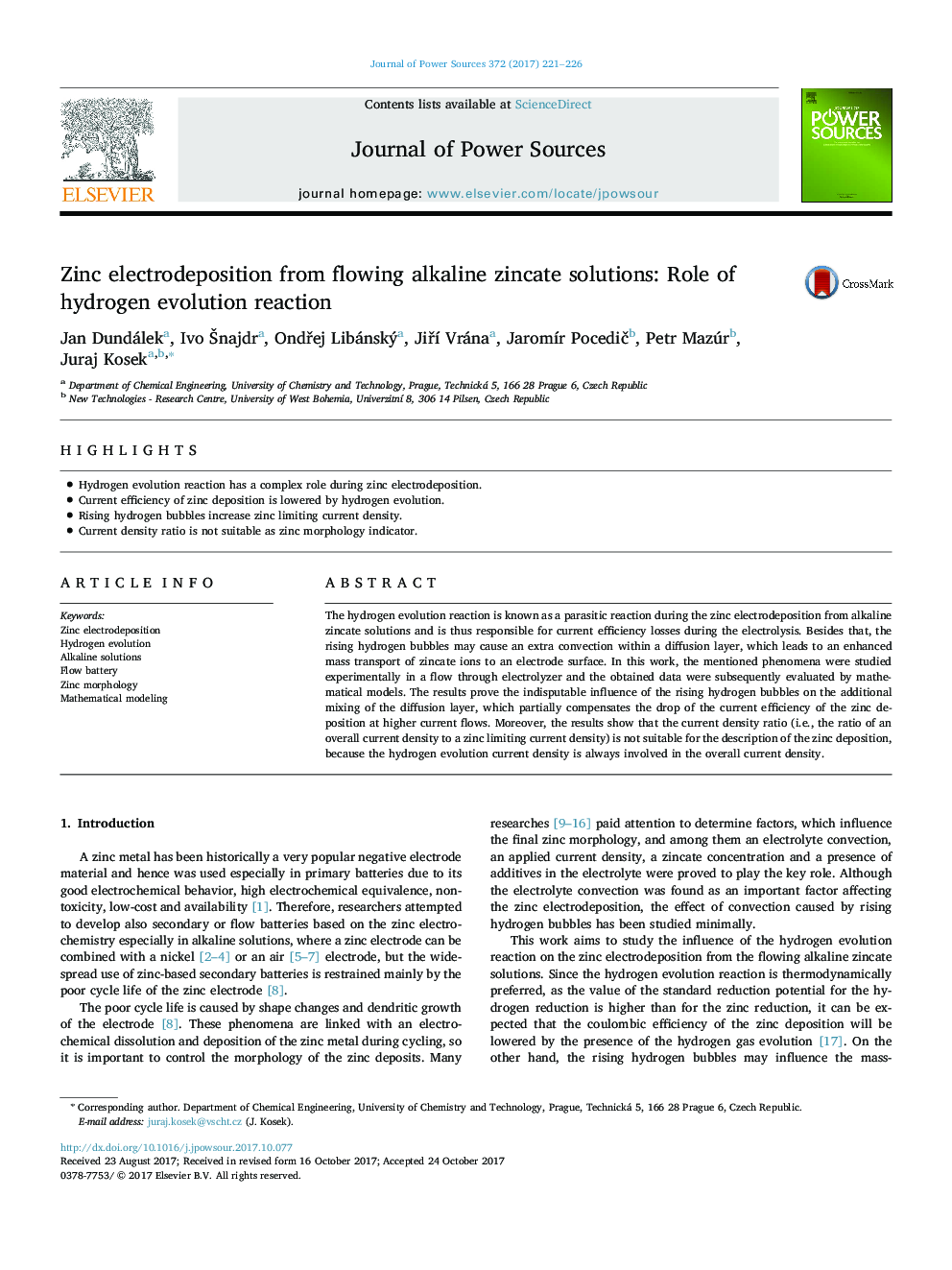| Article ID | Journal | Published Year | Pages | File Type |
|---|---|---|---|---|
| 7726512 | Journal of Power Sources | 2017 | 6 Pages |
Abstract
The hydrogen evolution reaction is known as a parasitic reaction during the zinc electrodeposition from alkaline zincate solutions and is thus responsible for current efficiency losses during the electrolysis. Besides that, the rising hydrogen bubbles may cause an extra convection within a diffusion layer, which leads to an enhanced mass transport of zincate ions to an electrode surface. In this work, the mentioned phenomena were studied experimentally in a flow through electrolyzer and the obtained data were subsequently evaluated by mathematical models. The results prove the indisputable influence of the rising hydrogen bubbles on the additional mixing of the diffusion layer, which partially compensates the drop of the current efficiency of the zinc deposition at higher current flows. Moreover, the results show that the current density ratio (i.e., the ratio of an overall current density to a zinc limiting current density) is not suitable for the description of the zinc deposition, because the hydrogen evolution current density is always involved in the overall current density.
Keywords
Related Topics
Physical Sciences and Engineering
Chemistry
Electrochemistry
Authors
Jan Dundálek, Ivo Å najdr, OndÅej Libánský, JiÅà Vrána, JaromÃr PocediÄ, Petr Mazúr, Juraj Kosek,
